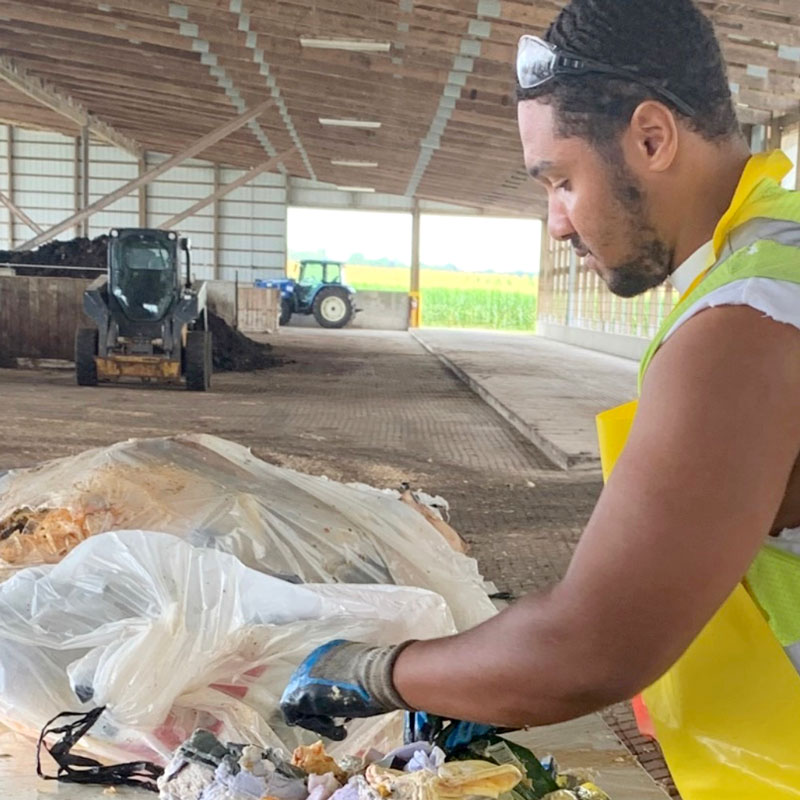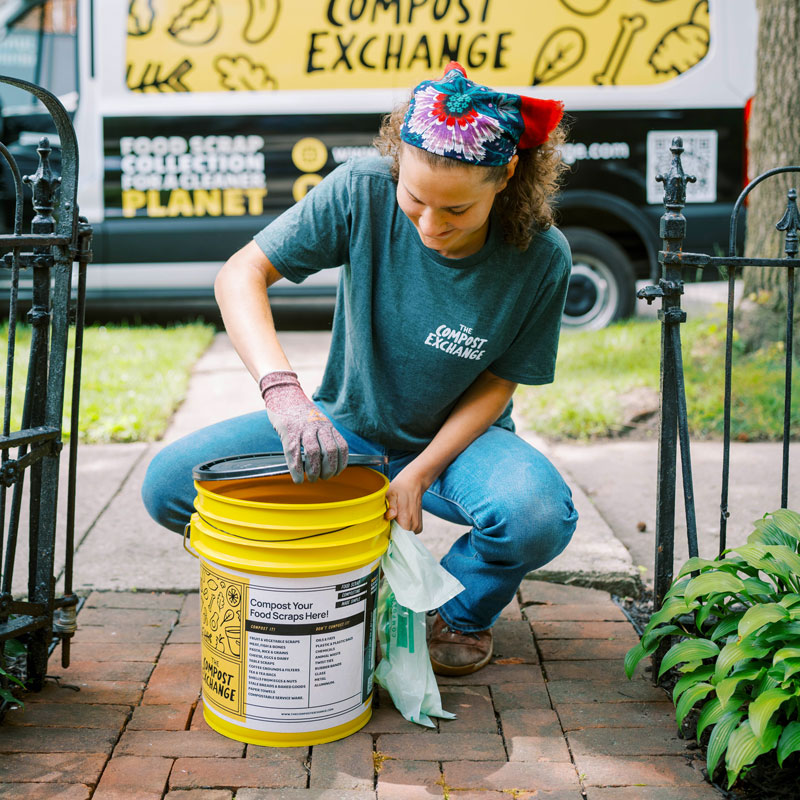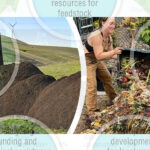Top: Households can join together and use one residence as the food scraps collection point. Photos courtesy The Compost Exchange
When it was founded in 2012 by Ray Leard as an Ohio EPA certified Class II composting facility in Athens, Ohio, The Compost Exchange was focused on composting source separated food scraps. Leard sold the Athens composting facility in 2015 and pivoted to food scraps recycling for Columbus-area residents and businesses through the operation of several drop-off locations around the city. In 2018, The Compost Exchange started the area’s first broadly available direct-to-consumer curbside service, collecting food scraps from the front porches and sidewalks of its customers. Leard sold The Compost Exchange recently to several of its members who are expanding operations to establish more drop-off locations and increase the number of both commercial and residential customers. The service area covers nearly all of the City of Columbus and surrounding areas with its drop-off and curbside collection.
All food scraps, soiled paper and BPI-certified compostable bags and foodservice ware are accepted. Residents use 5-gallon containers with an air tight lid and a compostable liner bag; commercial accounts receive 45-gallon carts. Households can subscribe to a drop-off location for $7/month, receive weekly curbside service for $19/month, or create a Curbside Team with their neighbors, with each member paying $10/month. All tiers of subscribers, including every member of a team, are eligible to receive up to 2 gallons of free compost twice a year. “We have 75 teams, which vary from 3 to 20 households,” notes Kate Harmon, Project Manager at The Compost Exchange. “For the larger teams, we give the household serving as the collection point a tote rather than having team members each leave their 5-gallon buckets of food scraps.” The company has about 3,000 residential members. It collects food scraps using vans that can accommodate up to 15 totes.

Incoming bags of food scraps are sorted and contaminants removed by workers at the London Correctional Facility composting site. Photo courtesy Ohio Penal Industries
Collected food scraps are taken to the Ohio Penal Industries’ (OPI) composting facility at London Correctional in London, as well as several area farms. The Compost Exchange picks up finished compost every few months, and sifts it to remove any contamination before distributing it to subscribers. “We see very little contamination in the residential food scraps we collect, and it’s mostly twist ties and produce stickers,” says Harmon. “We remove it when we see it while servicing a container. With commercial kitchens, the contamination is fairly easy to spot, and we communicate with the business so they can address it. In addition, contamination is removed by hand from loads when they arrive at the OPI facility.”














